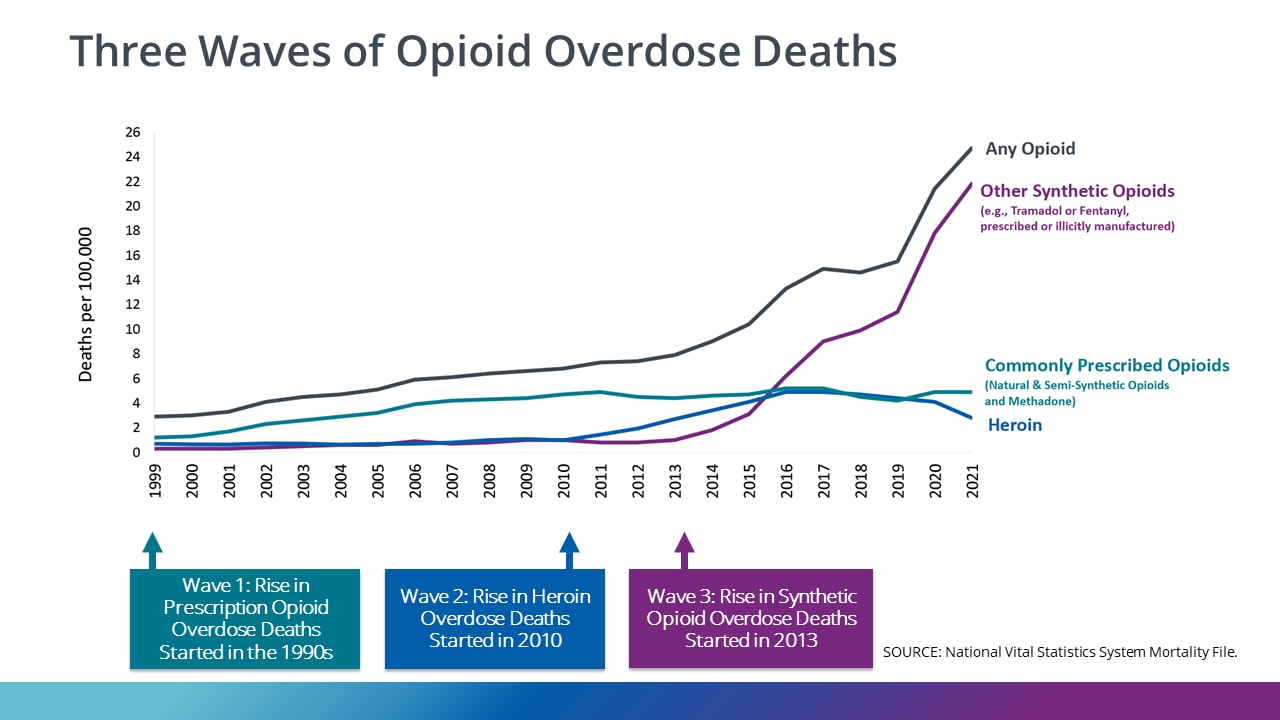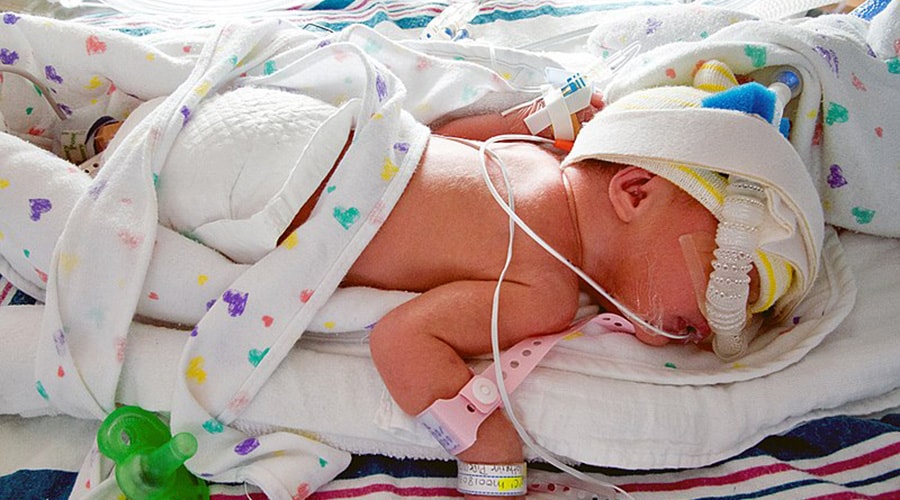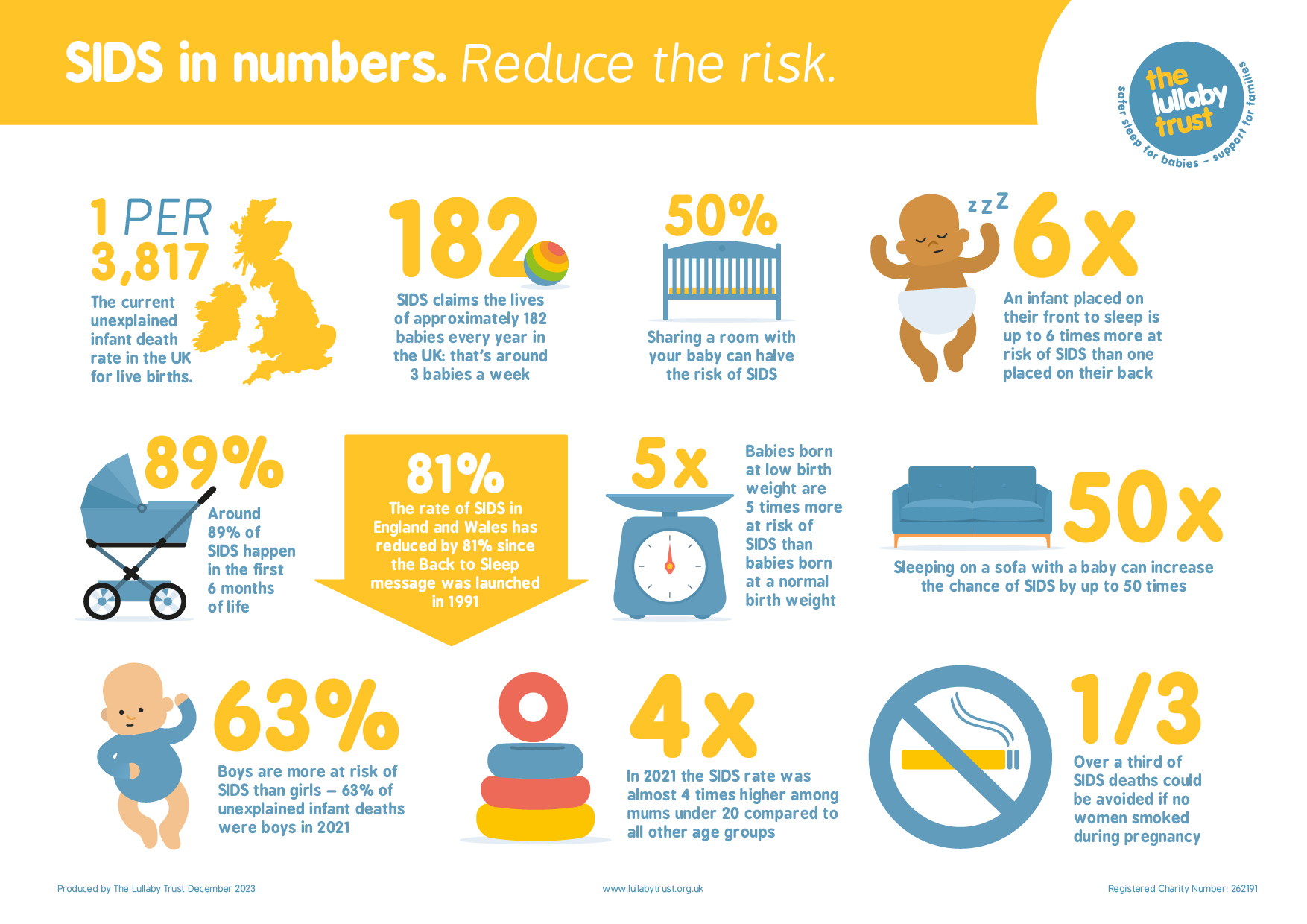The Opioid Crisis is a rising epidemic across America. According to the CDC, the number of people who died from drug overdose in 2021 was over 6 times the amount in 1999. This number increased by 16% from 2020 to 2021 alone, with 75% of drug overdose related deaths in 2021 involving opioids.
 |
| Center for Disease Control and Prevention: Three Waves of Opioid Overdose Deaths The chart above describes the rise of the opioid epidemic over time. The CDC describes this in three waves.
This epidemic has had major affects on maternal and child health, with opioid use disorder causing negative health outcomes for both mothers and infants. The CDC also addressed this issue, describing the following health outcomes associated with opioid use during pregnancy:
Babies exposed in vitro to drugs can often be born with neonatal abstinence syndrome, in which the are dependent on the substance at birth and face withdrawal symptoms as the drug is cleared from their system. In addition to physiological morbidities, this crisis is causing more and more families to be separated, whether by social services or by the loss of a parent. The National Network of Perinatal Quality Collaboratives, which is funded by the CDC, has the focus of improving the health outcomes of those affected by the opioid crisis. They have the goal of improving three potential encounters at three early stages of motherhood, via public health interventions.
This intervention focuses on screening for opioid use disorder as early as the mother's first prenatal visit. The provider can measure the mother's addiction severity and can then offer information on the risks of continued drug abuse, advise on the next steps throughout the pregnancy, connect the mother with available support system (Medication Assisted Treatment providers, psychiatric care, social workers, etc.). 2. Opportunities post-delivery: Empowering caregivers After birth, opioid exposed newborns are typically taken in for critical and intense care to try to alleviate their negative health outcomes. This can often leave mothers feeling alienated from both their baby and their baby's care. An attending neonatologist explained that, "Rather than inspire change, this approach risks telling a mother that she's not capable of caring for her child." Thus, care teams must empower mothers and teach them how to console their babies. This is shown to improve long-term outcomes for families and to help babies recover at a faster rate. Mothers must be informed of what to expect and be prepared to talk to social services. 3. Postpartum opportunities: Supporting the dyad When mothers first return home, they are often still battling addiction, now with the additional stress of a newborn. During the first year of life for a newborn, relapse rates spike for mothers, causing accidental overdose to be one of the leading causes of death in first year mothers. Thus, it is recommended for a two-generational approach at pediatric visits. These can allow for discussing addiction treatment and directing mothers to additional community support systems. |


No comments:
Post a Comment